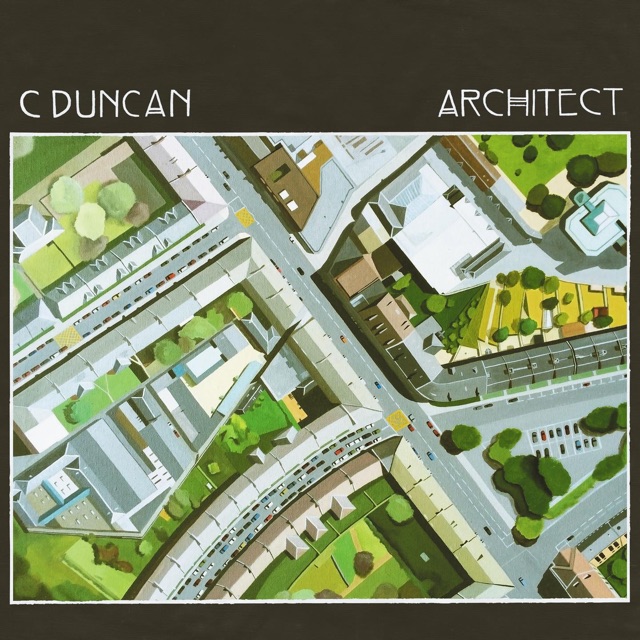Chris Duncan is a Scottish composer with an apparent ability to pick up any instrument he chooses. However, rather than using his composing skills to construct Craig Armstrong rip-off soundtracks for sub-par ITV dramas (he got that stage of his career out of the way early on) and fulfil the dream most of his classmates held, C Duncan has taken his considerable talents into the weird and wonderful world of pastoral indie. This is a unique land of whimsy, where the Grizzly Bears, Fleet Foxes and other Wild Beasts of this world roam free from urban constraints, just looking to find that perfect harmony to match the loose leaf Assam waiting back in their respective log cabins.
The aptly named Architect is Duncan’s attempt to build his own Iver-esque cabin in the woods by carefully selecting logs from each of his predecessors and binding them all with the ancient magicks of musical theory. The result is like being swaddled in musty autumn leaves by a lumberjack who won’t stop humming Chopin. From the emo of opener ‘Say’, to the bittersweet coda ‘I’ll Be Gone By Winter’, Duncan repeatedly combines church hall harmonies, rustling percussion and multi-tiered instrumentation to create a work that’s full of subtlety. The feather-light production of the title track suggests that we might finally have a Scottish equivalent of French dreamscapers Air, something the Union has been unknowingly crying out for since Moon Safari broke down the perceived barriers between the rustic and the synthetic. Considering that Chris Duncan received a classical music diploma from the Royal Conservatoire of Scotland, it’s unusual how few strings are present on the album. Instead layers upon layers of vocal towers, subtle warm synths and isolated whistle tracks substitute for the orchestra that Duncan could very easily have called in.
Time and again Duncan refers to earth, air and water: seeking rejuvenation through the natural world on the wide-eyed ‘Garden’ and waiting for the benevolent ocean to carry him home on ‘New Water’. Duncan’s voice is pleasingly androgynous, and repeated listens to ‘Novices’ aren’t convincing me that he’s not actually Victoria Legrand from Beach House. His clean-cut falsetto might lack the compelling carnality of Hayden Thorpe from Wild Beasts (whose influence on this album is ubiquitous and completely warranted), or the heft of Dry The River’s Peter Liddle, but his choirboy crooning complements the album’s focus on the unspoilt innocence of the natural world nicely. The Bagpuss xylophone of ‘He Believes In Miracles’ threatens to take this too far, sounding uncomfortably like the audition reel for the role of In The Nightgarden‘s musical director. But if this ends up being the album that parents use to get their toddlers into Nick Drake then I suppose it’s mission accomplished.
C Duncan’s merging of introspective dreampop with outward-gazing pastoral indie could have easily been a pile of twee claptrap, and there are times it sails pretty close to the rocks. But instead the composer with the Radio 6Music soul has constructed something elegant, thought-provoking and comforting that will genuinely make you wish it was October.
<div class="fb-comments" data-href="http://thequietus.com/articles/18404-c-duncan-architect-review” data-width="550">


